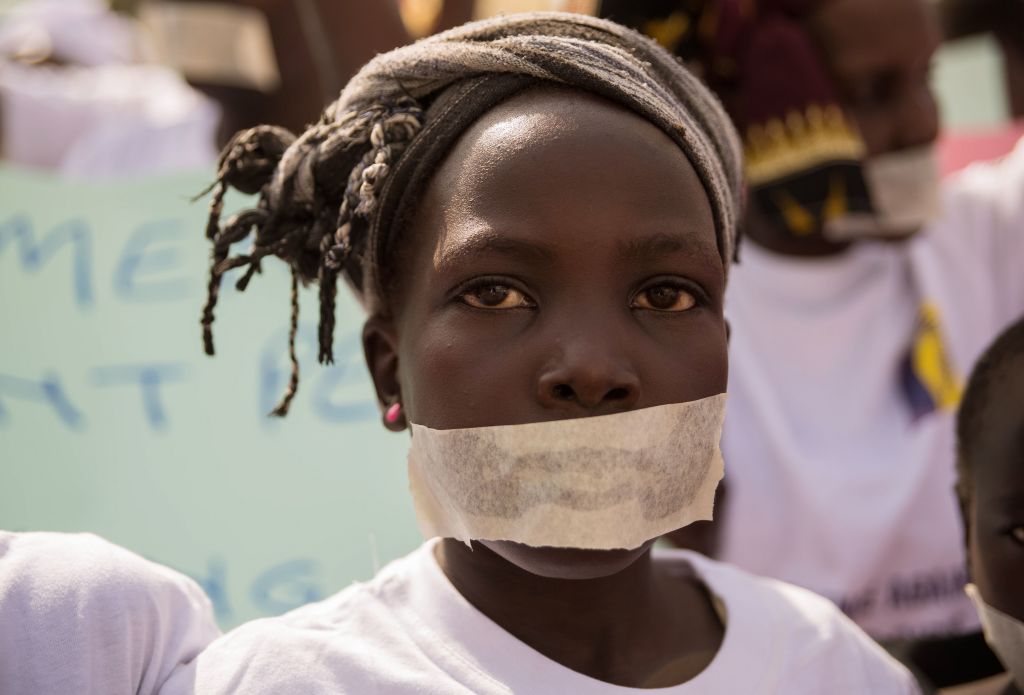Ten-thousand dollars, 500 cows and three cars: that was the winning bid for a South Sudanese child bride who was auctioned off into marriage by her father — on Facebook.

On Nov. 3, 17-year-old Nyalong became the ninth bride of the winning bidder, who is three times her age.
The man beat out rival bids from four other men, one of whom was the deputy governor of Eastern Lakes state.
Photos posted on Facebook show Nyalong sitting beside her much-older husband, wearing a lavish dress and staring despondently at the floor.
Facebook said it took down the post as soon as it learned of it, but that wasn’t until several days after Nyalong was sold and wedded.
“This barbaric use of technology is reminiscent of latter-day slave markets,” said George Otim, South Sudan director for children’s rights group Plan International. “That a girl could be sold for marriage on the world’s biggest social networking site in this day and age is beyond belief.”
The group has called on the South Sudanese government to investigate the Facebook auction and suspend the officials who were involved.
“She has been reduced to a mere commodity,” said human rights lawyer Philips Anyang Ngong, who tried to stop the bidding. He added that everyone involved in the auction should be held accountable.

Get breaking National news
ARCHIVES: NGO “Girls Not Brides ” working towards ending child marriages
In a statement to CNN, Facebook said that the auction started Oct. 25 and was removed Nov. 9 — six days after Plan International said the girl was married — for violating the site’s policies.
“We removed the post and permanently disabled the account belonging to the person who posted this to Facebook,” a company spokesperson told CNN.
“We’re always improving the methods we use to identify content that breaks our policies, including doubling our safety and security team to more than 30,000 and investing in Technology.”
However, child marriages are rife in the world’s youngest recognized nation state, which gained independence from Sudan in 2011.
According to UNICEF, over half of all South Sudanese girls are wed before their 18th birthday. Nearly one in 10 are married by age 15.
In some cases, girls who grow up outside South Sudan are brought back to the country and forced to marry. They sometimes arrive for what they think is a vacation, only to have their passports confiscated and be forced into marriage by their families.
PODCAST: Building trust in South Sudan following years of civil war
While South Sudan’s constitution outlaws child marriage, authorities said they can’t be expected to eradicate deep-rooted cultural norms.
“If you see it with European eyes, you’ll call it an auction,” government spokesman Ateny Wek Ateny told the Associated Press.
“You have to see it with an African eye, as it’s a tradition that goes back thousands of years. There’s no word for it in English.”
However, some local activists and lawmakers disagree.
Earlier this week, an organization representing women lawyers in South Sudan called on the government to put together a plan to eradicate child marriage by the year 2030.








Comments